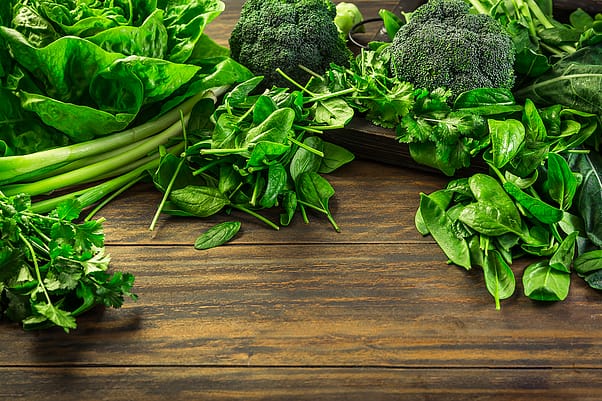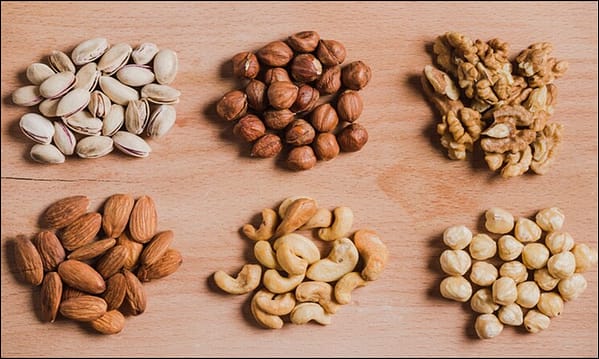Antioxidant-Rich Foods for Recovery after TMS Treatment for Depression
Introduction to TMS Treatment for Depression
Living with depression is tough, but the hope offered by TMS treatment for depression at RNR Medicine shines a light on a path to recovery. After undergoing TMS therapy, it’s crucial to focus on recovery, and one way to do that is through a mindful diet rich in antioxidant-rich foods for depression recovery. During a TMS session, magnetic pulses are delivered to specific areas of the brain, stimulating nerve cells associated with mood regulation. TMS is often considered when other treatments, such as medications or talk therapy, haven’t provided sufficient relief. It offers hope to individuals experiencing persistent depressive symptoms, providing an alternative pathway to recovery. This blog post will explore nutritional strategies after transcranial magnetic stimulation, shedding light on the importance of dietary support for TMS treatment outcomes.
Post-TMS Recovery and Nutrition
After completing TMS treatment, the journey to recovery continues. Nutrition plays a vital role in this phase, influencing your mental well-being and overall health. Supporting mental health with antioxidants post-TMS becomes crucial in this stage.
Importance of Nutrition in Mental Health Recovery
Eating well isn’t just about physical health; it’s also crucial for your mental well-being. A balanced diet can positively impact mood, energy levels, and cognitive function. Integrating antioxidants into the post-TMS diet is an effective way to nurture both body and mind. Additionally, proper nutrition supports overall brain function, helping you stay focused, alert, and emotionally resilient. By nourishing your body, you’re also nourishing your mind, creating a solid foundation for the positive changes that TMS can bring.
Role of Antioxidants in Supporting Brain Health
Antioxidants are the unsung heroes in the battle for mental well-being. They neutralize harmful free radicals, unstable molecules that can damage cells, including those in the brain. This protective action is crucial for maintaining the health of your brain cells and supporting cognitive function.
In the context of recovery after TMS therapy, the role of antioxidants becomes even more pronounced. The magnetic stimulation used in TMS sessions can trigger biochemical processes in the brain, and antioxidants act as guardians, preventing potential oxidative stress and supporting the positive changes brought about by TMS.
Link Between Diet and TMS Treatment Outcomes
Emerging research suggests a strong link between what you eat and the outcomes of TMS treatment. A balanced and nutritionally rich diet may enhance the benefits of TMS, potentially accelerating the response to treatment and promoting a more robust recovery. Consider your diet as a complementary element to TMS, working in tandem to optimize your mental health. The nutrients you provide your body during this period can act as catalysts for the positive changes initiated by TMS, creating a synergistic effect that fosters a more comprehensive and enduring recovery. By focusing on dietary support for TMS treatment outcomes, you pave the way for a more effective recovery journey.
Antioxidant-Rich Foods for TMS Recovery
Now that we understand the importance of antioxidant-rich foods for TMS recovery, let’s delve deeper into specific foods that can boost your brain health.
-
Berries Nature’s Antioxidant Powerhouses
Berries, such as blueberries, strawberries, and raspberries, are not only delicious but also pack a powerful punch of antioxidants. These tiny fruits are rich in flavonoids, which have been linked to cognitive enhancement. The antioxidants in berries help neutralize free radicals in the brain, reducing oxidative stress and inflammation. Including a variety of berries in your diet can contribute to improved memory, concentration, and overall mental well-being.
-
Dark Leafy Greens Nutrient-Rich Brain Boosters
Dark leafy greens like spinach, kale, and Swiss chard are nutritional powerhouses for your brain. They are abundant in vitamins, particularly folate, which plays a crucial role in neurotransmitter synthesis. These greens also contain antioxidants, including vitamin C and beta-carotene, which help protect the brain from oxidative damage. Regular consumption of dark leafy greens supports cognitive function, making them an essential addition to your post-TMS recovery diet.
-
Nuts and Seeds Healthy Fats for Cognitive Function
Nuts, such as almonds and walnuts, along with seeds like chia and flaxseeds, provide a dose of healthy fats that are essential for optimal cognitive function. These fats, including omega-3 fatty acids, contribute to the structural integrity of brain cell membranes. Additionally, nuts and seeds contain vitamin E, an antioxidant that supports overall brain health. Including a handful of nuts and seeds in your daily snacks or meals can contribute to sustained cognitive function and mental clarity.
-
Fatty Fish Omega-3s and Mood Enhancement
Fatty fish like salmon, mackerel, and trout are rich sources of omega-3 fatty acids, particularly EPA and DHA. These fatty acids are vital for brain health and have been associated with mood enhancement. Omega-3s play a role in neurotransmitter function and reduce inflammation in the brain. Including fatty fish in your diet can contribute to a positive mood, potentially aiding in the emotional aspects of your post-TMS recovery journey.
-
Colorful Vegetables A Rainbow of Mental Wellness
Embrace a variety of colorful vegetables to create a rainbow on your plate. Bell peppers, carrots, tomatoes, and sweet potatoes are not only visually appealing but also rich in diverse nutrients. The vibrant colors indicate the presence of phytonutrients, antioxidants, and vitamins that support overall mental wellness. Including a mix of colorful vegetables ensures a broad spectrum of nutrients, providing comprehensive support for your brain’s recovery after TMS therapy.
-
Green Tea Catechins and Mental Clarity
Green tea has been celebrated for its numerous health benefits, and its catechin content makes it particularly beneficial for mental clarity. Catechins are potent antioxidants with neuroprotective properties. It’s a soothing beverage for both the body and mind, aligning perfectly with your commitment to an antioxidant-rich diet post-TMS. Regular consumption of green tea has been associated with improved cognitive function and enhanced focus. The presence of L-theanine, an amino acid, adds a calming effect, contributing to mental clarity without the jittery feeling associated with some caffeinated beverages. Sipping on green tea can be a soothing and mindful addition to your post-TMS recovery routine.
Creating a Nutrient-Packed Post-TMS Diet Plan
Start your day with a balanced breakfast that includes a mix of whole grains, proteins, and a side of berries. Whole grains provide a steady release of energy, while proteins keep you full and focused. The berries not only add a burst of antioxidants but also a touch of sweetness to kickstart your day.
Balancing Macronutrients for Optimal Recovery
Achieving a balance of macronutrients – carbohydrates, proteins, and fats – is crucial for optimal recovery after TMS therapy. Each macronutrient plays a unique role in supporting your body and mind. Carbohydrates, found in whole grains, fruits, and vegetables, are the primary energy source for your brain. They provide a quick burst of energy, making them essential, especially during the initial stages of post-TMS recovery. Proteins, present in foods like lean meats, fish, eggs, and plant-based sources such as beans and tofu, support the repair and growth of tissues, including the neurons in your brain. Including protein in each meal helps maintain muscle mass and supports overall recovery.
Hydration and its Impact on Mental Well-being
Staying properly hydrated is often underestimated but holds significant importance in mental well-being. Water is essential for various bodily functions, including nutrient transport, temperature regulation, and waste elimination. Dehydration, even in mild forms, can lead to fatigue, difficulty concentrating, and mood disturbances. To maintain optimal mental well-being, aim to drink an adequate amount of water throughout the day.
Meal Timing for Sustained Energy Levels
The timing of your meals plays a key role in sustaining energy levels throughout the day. Instead of relying on three large meals, consider breaking your day into smaller, more frequent meals to provide a steady supply of nutrients and energy.
- Start with a nutritious breakfast within an hour of waking up to kickstart your metabolism and provide the energy needed for the day ahead. Include a mid-morning snack to maintain focus and prevent energy slumps.
- Lunch should be well-balanced, incorporating the superhero foods we’ve discussed – dark leafy greens, colorful vegetables, and a lean protein source. Afternoon snacks can consist of nuts, seeds, or a piece of fruit to keep your energy levels stable.
- For dinner, aim to eat at least two hours before bedtime. A lighter, well-balanced meal ensures that your body isn’t working hard to digest food while you sleep, promoting better sleep quality and overall recovery.
Discover foods that can influence your mood in our blog post: Nutrition and Depression: Foods That Can Influence Your Mood
Adopting a nutrient-packed post-TMS diet plan is a holistic approach to support your mental health journey. By focusing on antioxidant-rich foods for TMS recovery, balancing macronutrients, staying hydrated, and being mindful of meal timing, you’re providing your body and mind with the essential tools for recovery.
Remember that the road to recovery is unique for each person, and small changes in your diet can make a significant impact. Celebrate the progress, be patient with yourself, and embrace the nourishing power of food as you continue you recovery journey after the TMS for depression treatment in Mumbai toward a brighter and healthier future.








